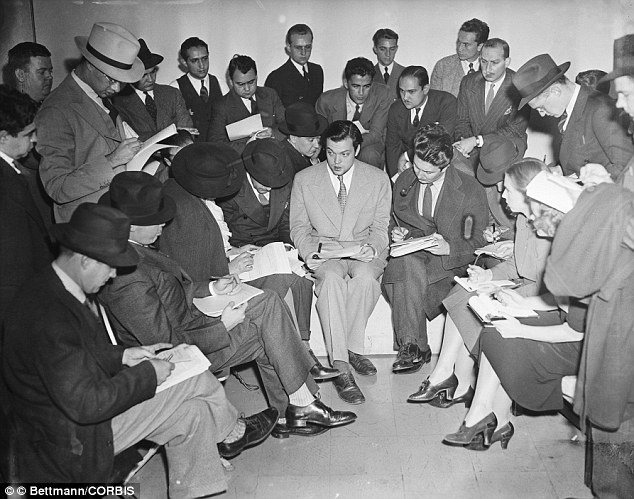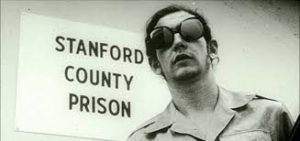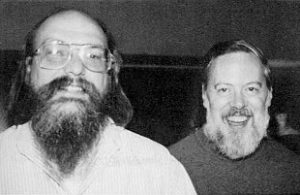Winner of the Fall 2016 StMU History Media Award for
Best Introductory Paragraph
“At least forty people, including six state troopers, lie dead in a field east of Grover’s Mill, New Jersey, their bodies burned and distorted beyond recognition.”1 These were the words heard on the night of October 30, 1938 in homes all over the United States. It was the night before Halloween and the Mercury Theatre on the Air radio show wanted to give listeners a fright in celebration of the upcoming holiday.2 What was meant as a scary story in good fun, sent the listeners of the broadcast into a full blown panic.

The live on air radio production was an adapted story from H.G. Wells’s famous novel, The War of the Worlds. In the novel, the setting takes place in England, and a league of alien spaceships, first thought to be shooting stars and meteors, begin to land. People in the surrounding area grow curious, and decide to venture out and see what all the commotion is. As a man approaches one of the meteors, he realizes it is in fact not a meteor but a hollowed out cylinder. Soon a hatch on the cylinder begins to open and a huge, disgusting creature with long gray tentacles emerges. People begin to flee their homes and panic spreads throughout the town and later throughout England. The aliens attack for weeks, feeding on the blood of humans until finally meeting their deadly fate and falling victim to human bacteria.3

Actor and filmmaker Orson Welles teamed up with one of Mercury Theartre’s writers, Howard Koch to broadcast the show over the CBS radio network. Listeners were enjoying dance music when their program was suddenly interrupted by a report of a meteorite landing. To make the story even more believable, Koch decided to alter the script and changed the location from England to a small village in New Jersey.4 Much of the rest of the story was unchanged and there were “reports” of huge creatures wreaking havoc on the town and killing people with their death rays and poisonous gas. Koch took the story even further and had an actor play the part of a reporter who was live in Time Square and reporting the devastation and destruction of New York City before falling dead himself at the microphone due to an alien attack.5 Another actor on the show who was asked to play an anonymous politician, was able to alter his voice in such a way as to sound almost identical to President Theodore Roosevelt. The “politician” declared a state of emergency and stated that troops were being sent in to help stop the invaders.6

It may seem peculiar that anyone would believe this story as factual, but that is exactly what happened. Koch was careful to make sure there were no commercial interruptions during the program to lend even more authenticity to the special report. There were reports of people all over the East Coast fleeing their homes and some adorned with gas masks remembering that the masks had once been used as a defense against gas warfare in WWI.7 Two geologists from Princeton rushed to the site of the reported meteor landing to get their hands on samples, only to find all was well in the area.8 Radio and newspaper stations were flooded with inquiries about the events reported, demanding to know what was happening. Why would anyone allow themselves to become worked up over a little scary story such as this? To answer that question, one must simply look at the events throughout history prior to and those that transpired during the early 1930s.
The stock market crash of 1929 opened the doors to the Great Depression, which was a time when America saw rates of high unemployment, lower salaries, and increased poverty. In 1937 the German airship, Hindenburg, sailed from Frankfurt, Germany to New Jersey and exploded upon its arrival, killing 36 of its crew and passengers. Between 1934 and 1937, the Midwest experienced a period of drought, loose soil, and high winds resulting in the Dust Bowl, leaving thousands of farmers without crops or livestock for several years. War machines being created in both Germany and Japan caused rising tensions, and people throughout the world were on high alert for a possible attack. The Munich Crisis had recently been broadcast by radio throughout America, and citizens were on alert for invasion.9

Taking into consideration all that had recently transpired in America, one can see why a story of invasion was taken seriously and how it could easily send the country into panic. Sociologist Hadley Cantril said it best when he described the actions of the American people as “anxiety latent in the general population caused by years of economic depression.”10 Even though listeners were told four times during the broadcast that what they were hearing was a dramatization of Wells’s famous novel, the American people were already in such a panic, most did not even hear those words.
Unlike today, news was delivered much slower in the 1930s. People did not have access to social media the way we do today. The War of the Worlds radio broadcast linked Orson Welles to the greatest hoax in the history of broadcasting at the time. If something such as this were to happen in the news today, with the limitless sources to media available, the story would be quickly exposed as the fictional tale it is. The Federal Communications Commission investigated the program, but no laws had been broken and the Mercury Theatre faced no charges. The program had done its job and terrified the American people. At the time the show aired, Americans were still on edge about the possibility of war and this show exposed the fragility of American life.
- Alan Brinkley, American History: Connecting the Past Volume 2, 15 edition (New York: McGraw-Hill Education, 2014), 696-697. ↵
- Funk & Wagnalls New World Encyclopedia, 2016, s.v. “War of the Worlds.” ↵
- Salem Press Encyclopedia of Literature, January 2015, s.v. “The War of the Worlds by H. G. Welles,” by Carl Rollyson. ↵
- Richard Cavendish, “Martians Invade New Jersey,” History Today 58, no. 10 (October 2008): 13. ↵
- Brinkley, American History: Connecting the Past Volume 2, 696-697. ↵
- Richard Cavendish, “Martians Invade New Jersey,” History Today 58, no. 10 (October 2008): 13. ↵
- Brinkley, American History: Connecting the Past Volume 2, 696-697. ↵
- James Naremore, “Who Caused the Mars Panic,” Humanities 24, no. 4 (July 2010): 38-39. ↵
- Salem Press Encycolpedia, January 2016, s.v. “Analysis: On the War of the Worlds Radio Broadcast,” by George Dixon. ↵
- James Naremore, “Who Caused the Mars Panic,” Humanities 24, no. 4 (July 2010): 38-39. ↵



37 comments
Gabriela Medrano
This article made me chuckle a little only to feel like a jerk at the end. America’s fragility and instability is a sad reflection of the American life in the 1930’s. One wouldn’t expect people to react this way (which was definitely no the case) however, that goes to show how times have changed and how fortunate we are to have the adequate technology and other medie sources to warn us if we are in any real danger. Great article, well done!
Ana Gonzalez
Loved this article! You did a great job summarizing what the play was about and then describing how it was reported in the radio so carefully and so well planned that the public actually believed it. Although it’s a bit funny now, I’m sure that during the days of the reports people must have panicked. I think the people believed what they heard since it was difficult to spread the news back then and they had just experienced a horrible war. Very interesting! Thank you!
Cesar Zavala
Really interesting article, War of the World was a movie that I really enjoyed when I was younger as well as the parody that the Scary Movie franchise did on it. I had no clue, before reading this article, that the War of the Worlds movie came from a novel, it might be my next read. It’s crazy how, in the past, people would all listen to the radio for news on what was happening in our country and that they believed this broadcast was true tells me that the producers probably put a lot of effort into making it seem as real as possible.
Sergio Cervantes
I enjoyed reading this article because it dealt with an event that I had never heard about. One would suspect the individuals of the time to understand that it simply was a story, but that is just not the case. I cannot imagine how terrified the individuals were upon hearing the broadcast. Props to the producers and actors behind this because they thought of everything when creating this story. It proves how important details are when trying to create the illusion that something is real.
Alyssa Valdez
I thought that this article was very interesting and I actually found it very amusing! To think that a broadcast could have so much impact on people and actually cause panic but i honestly find it so funny that a fake war heard from a radio could scare so many people! I all honesty I had never heard of this happening before so reading about it was very interesting! I can tell you put alot of effort into your research!
Nahim Rancharan
First, this was an AMAZING article! When I read title I thought it was going to talk about some war between major countries that occurred in the past. I was mind blown to find out that the article was focused on looking at the effects of H.G Wells’ novel, War of the Worlds. I’ve never read the book, but I have seen the movie adaptations and I could see how this might have been alarming for millions of Americans, especially given the circumstances of their not so fortunate situations in the past. The article did a great job at capturing my attention and keep me reading more. This was excellently organized and executed. Overall, a Great Job!
Gabriela Serrato
This was a fantastic article. One reason being that it was a different article than I am used to reading on this website. This story is so unique and interesting because the story is almost bizarre. It was almost like the people were living in a Twilight Zone episode when they heard and reacted to this story. While it is true that people modernly would be able to find out quicker is a story was false, I still see many examples in the news today that have fake stories that people still have big reactions to.
Teresa Valdez
When I first read about the reactions to the broadcast, I could hardly believe that people actually thought that it was real. However, in context, it is completely understandable that the American people had reacted in this way. The Great Depression and the threat of war loomed over the American people. The article does an amazing job of evoking that anxiety, I could practically feel it myself. Fantastic effect and excellent article!
Tyler Sleeter
This is one of my favorite books and I loved hearing about this story from a television show years ago. At first it does seem so strange that people would react so strongly to a story on the radio, but we have to remember that times were vastly different in the 1930s compared to the 2010s. I remember hearing that when the show began, the radio gave a warning that it was a fictional broadcast. The problem was that many people tuned into the show after another, more popular show on a different station had ended, and these people did not hear the warning. This was a time before fake news like The Onion or alternative facts propagated by presidential advisers. The listeners had no reason to doubt what they were hearing was true.
Mariana Govea
Your article was super interesting!! How crazy! I had never heard of this event! Put after reading your article, you did a great job with your research as well as organizing it it flowed thoroughly very nice! You explained the event exactly how it happened therefore making it easy to comprehend!Its kinda mean what this author did, but it makes perfect sense of why he did it, which you did a great job at explaining that as well where you say that it made sense people believed this nonsense to be true since these people were already traumatized and had gone through a lot that even this seemed real to them!